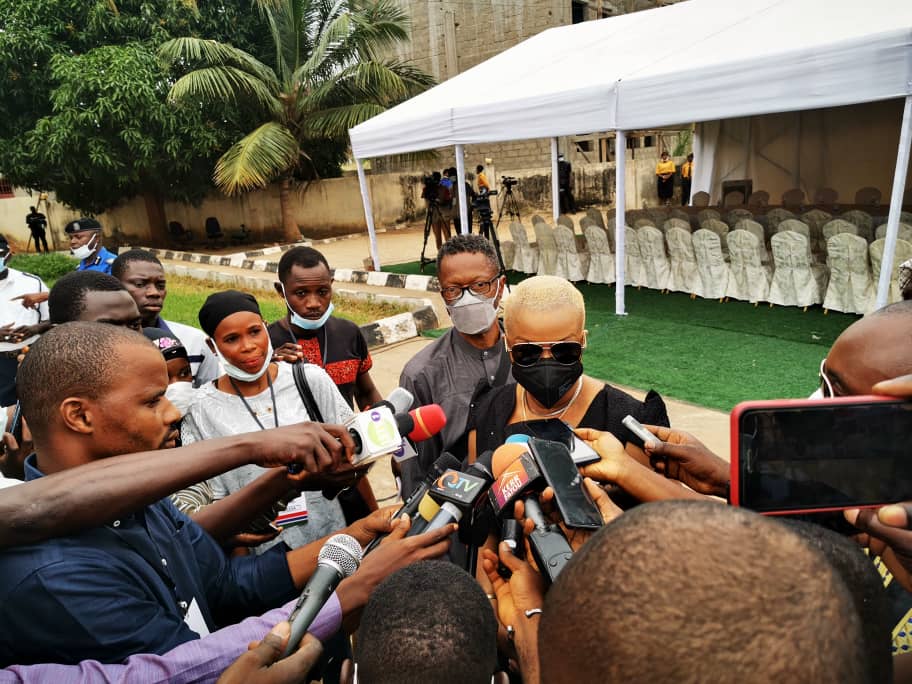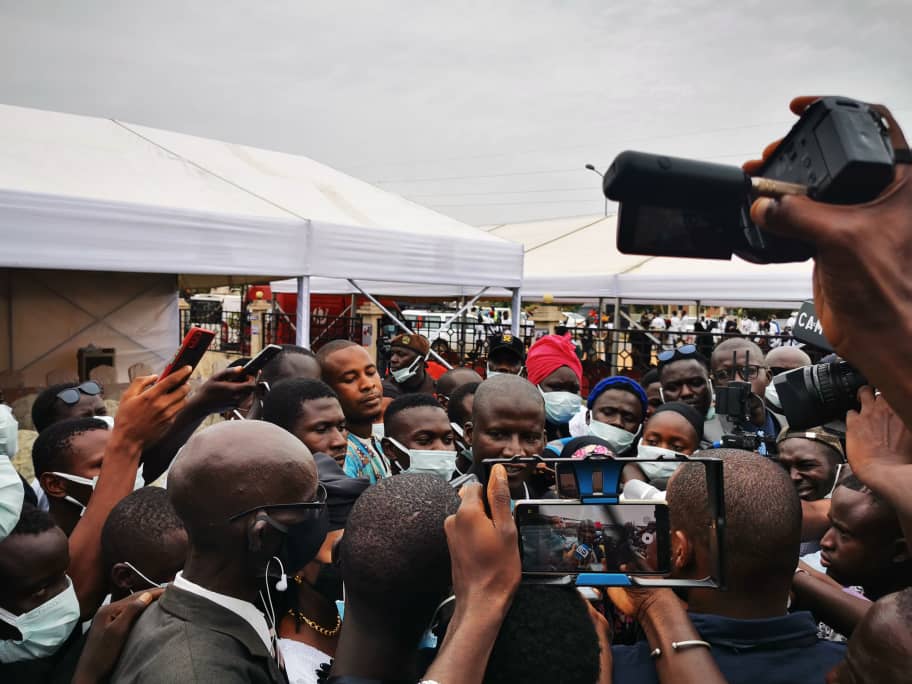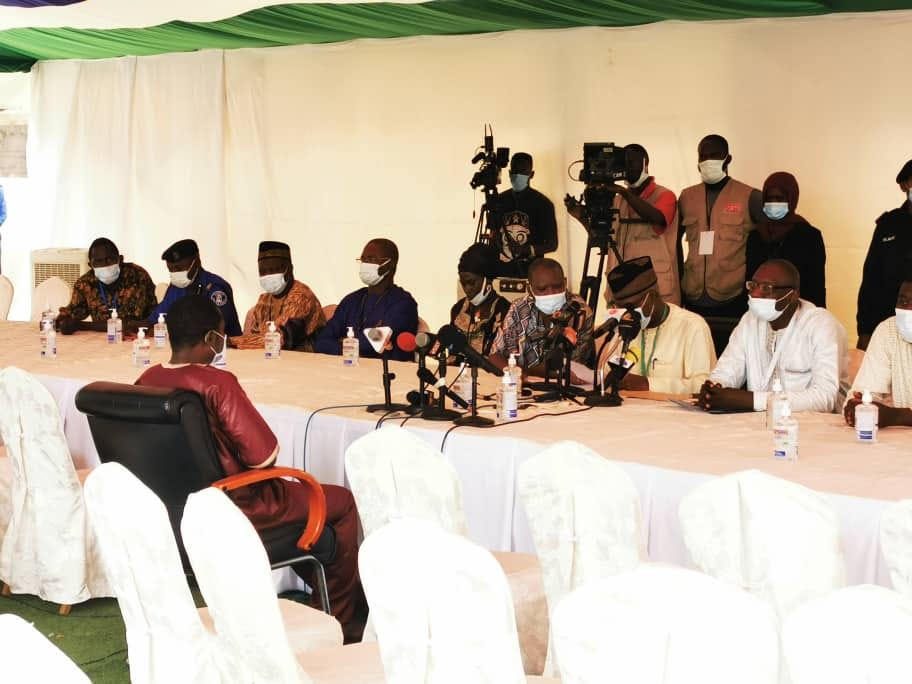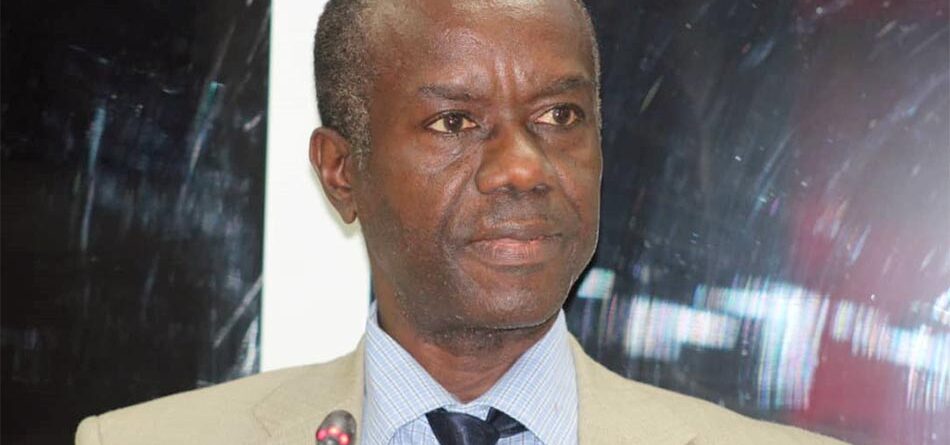Ex-justice minister Joof, others submit details for nominations with IEC
The nomination for presidential candidate in Gambia’s December 4 election has started on Saturday with the submission of nomination papers by Joseph Henry Joof, a one-time justice minister under ex-president Yahya Jammeh. The controversial figure passed a bill in 2000 indemnifying soldiers who shot student protesters.
“I will win these elections. I am very optimistic. Gambia needs a new breed of politicians…,” Joof told journalists after submitting his nominations at the Election House. Joof will be an independent candidate if his nomination gets a pass from the Independent Electoral Commission (IEC).
In April 2000, hundreds of Gambian students took to the street demanding justice for the death of Ebrima Barry in the custody of Fire and Rescue Services and the alleged raping of Binta Manneh by member of paramilitary forces at the Independence Stadium in Bakau. None of the incidents was investigated, causing rage among the students. Fourteen students were killed and dozens wounded.
Mr Joof, who arrived at the election house on Saturday morning in the company of two others, appeared before Gambia’s Truth Commission investigating the human rights violations of ex-president Jammeh. He denied any wrongdoing.
Joof did not, however, submit all documents required for nominations by Independent Electoral Commission (IEC). He, like other potential candidates who fell short in their nominations requirements, can still make submissions before nomination closes on Friday, October 5, Samboujang Njie, the IEC chief electoral officer, told Malagen.
On November 6, all candidates and their details will be published for public scrutiny, giving IEC an opportunity to publish the final list on the evening of the same day.

Meanwhile, Marie Sock has also filed her nomination papers on Saturday, making her Gambia’s first female presidential aspirant to have gone that far. The country’s current vice president Isatou Touray was the first to have make attempts to nominate for presidential elections in 2016, but she withdrew to support President Adama Barrow.
So far, the electoral body is expected to receive nominations of 26 candidates, 13 of which are independent candidates. However, the number of candidates to nominate is expected to reduce as parties and potential independent candidates form alliance ahead of elections.

Meanwhile, the third to submit his nomination papers on Saturday was Alhaji Mamadi Kurang, a chartered accountant who founded the Jollof Tutors, a tertiary school that offers training in information technology.

Meanwhile, Mathew Gomez who initially filed for nomination as an independent candidate has withdrawn his application on Saturday. Little is known about Gomez. He came to election house on Saturday afternoon to withdraw but declined to speak to the press.
On October 29, the Gambia Democratic Congress has announced an alliance with Gambia Alliance for National Unity and a faction of the Alliance for Patriotic Reorientation and Construction (APRC) party. The other faction of the APRC led by Fabakary Tombong Jatta is with President Adama Barrow’s National People’s Party.
The requirements for nominations are the following: Gambian citizenship; one must be at least 30 years; senior secondary school certificate; resident in the country 5 years preceding 4 Dec., 2021; nominated by 5000 voters, at least 200 of which have to come from each region; submit a sworn assets declaration; a tax clearance certificate; a deposit of D10, 000; produce a party symbol, colour and photograph of a candidate; adhere to IEC code of campaign ethics, submit a manifesto on tolerance and multi-culturalism and finally a person qualified to register as a voter may be qualified as an independent candidate.

